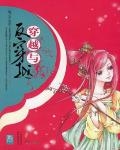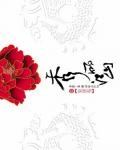Volume 1 Jiangdong Fengyun Chapter 109: The Many Faces of Hua Xin
In August of the first year of Jian'an, Hua Xin and Wang Lang resigned their posts as county governors, and after Bai Tu had requested to see them many times, he entered the governor's mansion - at least that's what the rumors said.
But the document has not yet arrived at the court.
The provincial governor's office has also announced the appointments of the two people. Hua Xin is the Grand Priest and Education Officer of the Ministry of Rites, and Wang Lang is the Director of the Ministry of Justice.
The Grand Priest is a position that only exists in the Ministry of Rites. It is equivalent to a department, or an "honorary department".
As for the Ministry of Rites' main department, Bai Tu has already handed it over to Kong Rong - not because Kong Rong is so capable, but because I think Kong Rong is now obsessed with writing books!
In addition to "Qieyun", Bai Tu also sorted out a lot of materials on the meaning of classics and gave them to Kong Rong to write a book.
The "Qieyun" was enough to make Kong Rong stand out among his fellow "great scholars", and the several commentaries on the classics that Bai Tu secretly gave him made Kong Rong feel... that he could ascend to heaven!
Of course, the interpretations of the classics that Bai Tu chose had all stood the test of time and did not directly conflict with his ideas, and they were gradually handed over to Kong Rong.
Kong Rong was a very emotional person. In order to make trouble for Cao Cao, he could tear up the Confucian filial piety...
It was only after Bai Tu was convinced that Kong Rong was gradually "infatuated" with him that he secretly handed over all the classics and doctrines to Kong Rong.
At first, Kong Rong was shocked by Bai Tu's erudition, but he also firmly rejected this attempt to deprive him of his literary merits. However... now he has really fallen in love with him.
Firstly, he was used to it, and secondly ... Kong Rong was not stupid. He had gradually realized that Bai Tu gave up his literary merit to him because Bai Tu did not need any "literary merit" at all, but needed something more practical.
For example, a Confucian scholar who can interpret the meaning of the classics from "different angles" for the sake of a white map...
From the moment Kong Rong calmly accepted his gift, Bai Tu already knew that Kong Wenju would be willing to forsake his relatives for him!
Bai Tu was also looking forward to the time when Xiao Wang grew up and Lao Kong became famous. By then, one would forge and the other would annotate, and the two swords would join forces to be invincible in the world - I say what the sage says and thinks, and that is what the sage says and thinks.
The Ministry of Rites is responsible for education and recommending officials. The head of the Ministry of Rites must be someone Bai Tu trusts, and Kong Rong now meets this condition.
However, although Kong Rong was also a famous Confucian scholar, he did not have the status of a leader in the Confucian community. Therefore, Bai Tu specially established a nominal position of Grand Priest in the Ministry of Rites to prevent these great Confucian scholars from being dissatisfied with each other. After all, there is no first in literature.
In fact, Kong Rong was more like the "Grand Priest", and the real work of the Ministry was done by Hua Xin...
Bai Tu was truly confident in Kong Rong because Kong Rong himself was obsessed with writing books and was pursuing literary achievements rather than power in the Ministry of Rites.
In fact, Bai Tu was more confident about Hua Xin, who was actually in charge of the Ministry of Rites.
Although Hua Xin had his ignominious side, for example... after the famous Yidaizhao incident, when Cao Cao sent people to force the palace and capture and kill Empress Fu and the prince, the person who led the troops into the palace was Hua Xin. In artistic creation, it was Hua Xin who personally pulled Empress Fu out by her hair while she was hiding in the wall.
After Cao Pi died, he began to think about usurping the throne. While other Wei officials were still hesitating, Hua Xin had already taken the forged edict he had drafted and forced the emperor to abdicate...
This image can't be considered positive at all, and in the story of "all taking refuge on the boat", it can only step on Wang Lang and enter the penultimate level of the moral contempt chain.
But Bai Tu was more concerned about Hua Xin's performance during his time in Cao Wei.
After Cao Pi came to power, the major families had gradually completed their transformation into aristocratic families. The Nine-Rank System was launched, and the major aristocratic families began to extend their tentacles in various aspects.
At this time, something happened. The three ministries proposed to Cao Pi that in the future, when appointing talents, one should only consider their moral character, without having to test their knowledge of the classics. However, this proposal was suppressed by Hua Xin.
On the surface, what the three officials said made sense. Bai Tu also thought that reading the scriptures was nothing more than improving one's own moral character. However, with the changes of the times, the scriptures that were only read in a book would eventually become outdated. Wouldn't it be better to just look at one's moral character? Why must one be tested on the scriptures? It's not like one has no moral character if one doesn't read the scriptures...
But Bai Tu has also done his homework, so he has a different understanding of this "episode". In theory, it seems that what the three officials said makes sense, but in reality, we need to combine one point to see - how is "morality" measured? It depends on reputation! Where does reputation come from? It's blown up...
Given the situation in the State of Wei at that time, only those who had someone to help blow the whistle could have a reputation. Ordinary people, even children from poor families, had no one to support them, inside or outside the court, so how could they have a reputation?
In other words, the so-called "morality" is completely a monopoly resource of these aristocratic families. Only when they say that a person has morality can he be considered to have morality.
Under such circumstances, Hua Xin was able to stick to the bottom line and at least leave an assessment standard, which was already a huge contribution to Cao Wei's balance of power among the aristocratic families.
During the reign of Cao Rui, when the aristocratic families had already risen to prominence, Cao Rui clearly stated that "morality is just a pie in the sky for the court", hoping to promote people based on their talents. However, he was repeatedly rebuked by the aristocratic families who had already become powerful...
While Hua Xin was in Yuzhang, Bai Tu also looked at the people he recommended, and found that most of them were indeed people of real talent and knowledge, and some of them had no background at all.
In comparison, Hua Xin, at least in terms of selecting talents, has a bottom line and his character is extremely high. Bai Tu does not have to worry that he will side with the aristocratic families while in the Ministry of Rites.
Even thinking about it this way, it seems that there is some reason why Hua Xin, a man with a much higher moral bottom line than any other aristocratic family, was later discredited by someone.
At the same time, under Bai Tu's "guidance", Hua Xin recommended Guan Ning and Bing Yuan - these three people were collectively called "One Dragon", and Hua Xin was also called the Dragon Head.
"Have you heard of the two gentlemen when you were in Liaodong, Ziyi?" Bai Tu asked Taishi Ci privately.
After Taishi Ci destroyed the book of assassins, he once became a "fugitive" and, like many people, regarded Liaodong as a holy place to escape from disasters.
Guan Ning and Bing Yuan also went to Liaodong after the chaos came - every time there was chaos in the Central Plains, it was an opportunity for development for Liaodong.
"Mr. Guan and Mr. Genju spread the teachings of sages in Liaodong. Even in Liaodong, they have many followers. Even Gongsun Du respects them very much." When Taishi Ci was in Liaodong, he naturally had heard of the names of these two people.
"Genju" was Bing Yuan's courtesy name. Bing Yuan and Taishi Ci had some friendship, so Taishi Ci called him by his courtesy name.
"That's great. Can Ziyi take a trip to Liaodong?" Bai Tu asked.
From Jiangdong to Liaodong...if everything goes well, I won’t be able to see Taishi Ci until next year!
But precisely because it was far away, Bai Tu would not feel at ease if it were someone else, and Taishi Ci happened to be familiar with the route.
"My lord, when Bai Gongli and Bai Gonghuan come out..." Taishi Ci was a little worried about Bai Tu's safety.
"The only ones who will be truly offended are two or three families, and there won't be any major wars in the near future, so I just need to be careful." Bai Tu also knew that this matter would benefit the world, but it would also offend some people.






